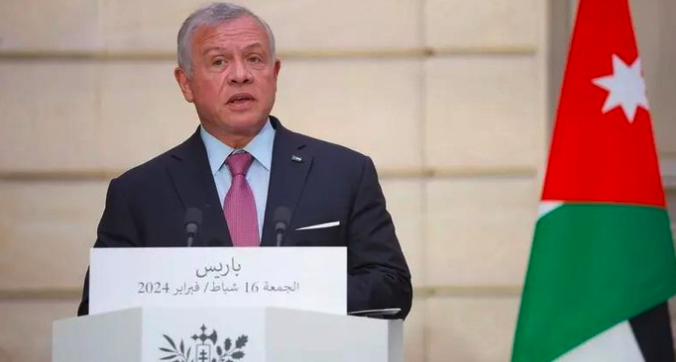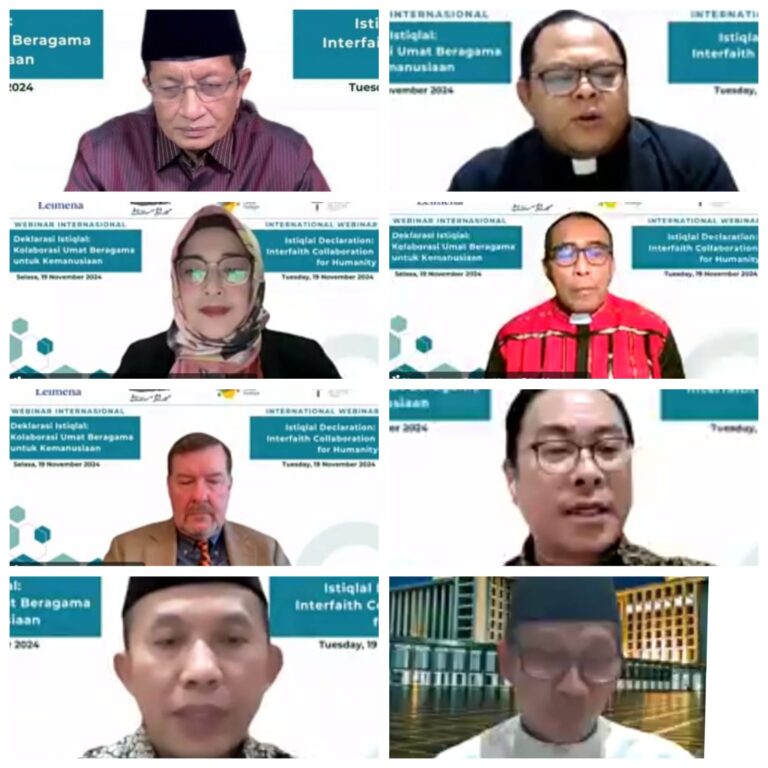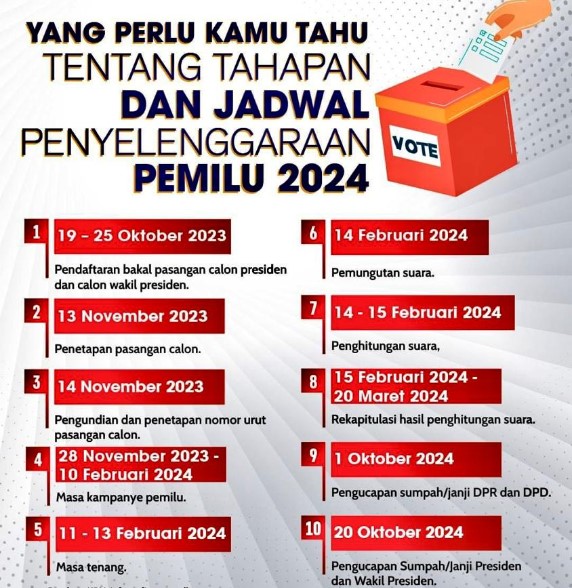
STRATEGIC ASSESSMENT. Days before candidates officially register for Indonesia’s elections, a game-changing ruling by the nation’s constitutional court has sparked concern over the integrity of the vote in the world’s third-largest democracy. The ruling, issued by a court headed by the president’s brother-in-law, has raised fears of a resurgence of patronage politics in a country that only 25 years ago emerged from the authoritarian rule. Analysts say Jokowi has been manoeuvring behind the scenes to safeguard his legacy and extend his influence beyond his term in office.
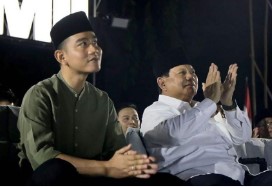
An adept political operator, Jokowi may be betting that his high approval ratings will help him weather any backlash, but Goenawan Mohamad, founder of investigative magazine Tempo, said that was a gamble set to fail. What is remarkable, analysts say, is that Jokowi has managed to stay so popular despite critics pointing to a trend of democratic regression.
Constitutional Court Deputy Chief Justice Saldi Isra delivered a dissenting opinion on the decision granting judicial review of Election Law Article 169 letter q regarding the minimum age limit for presidential and vice presidential candidates.
According to Saldi, some judges were too eager or hasty to make a decision. He admitted to being perplexed by the decision of the Constitutional Court. According to Saldi, this was the first time he had seen the court’s stance and attitude shift in an instant.

He also expressed concern that after granting a portion of the lawsuit concerning the age limit for presidential and vice presidential candidates, the Constitutional Court would become trapped in the political vortex and lose public trust.
Hundreds of prominent Indonesian civil society figures gathered to protest against a controversial decision by the Constitutional Court that they say paves the way for the rise of a political dynasty, and pulls the country back to the era of strongman leader Suharto.
“The reform we initiated and democracy we all have developed in the past 25 years are being betrayed,” said the group — comprising university professors, former anti-graft agency commissioners and lawyers — in a statement.
Indonesia’s ruling party on Wednesday appointed a high-ranking cabinet minister and Islamic scholar as its vice-presidential candidate in next year’s election, in a move that analysts said could level the playing field with a rival pairing that is likely to involve President Joko Widodo’s eldest son.
Contestants vying to rule the world’s third-largest democracy are set to register themselves to the General Election Commission kicking off a series of election processes that will climax on February 14 when voters flock to the booths nationwide. Registration of candidates will close on October 25.
While the court has clearly had its ups and downs in its 20-year history as a key legacy of the Reform Era, it was able to maintain a certain level of public legitimacy as the sole interpreter of the Constitution. That is no longer the case. Its Oct. 16 decision is an affront to the rule of law. The court is now at the nadir of its credibility. It can no longer function as a legitimate guardian of the Constitution and has lost its capacity to serve in the interests of the public.
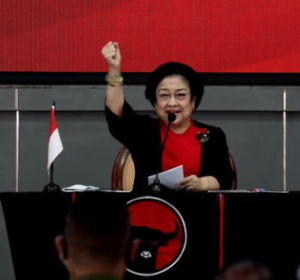
PDI-P Chair Megawati Soekarnoputri announced that Political, Legal, and Security Affairs Coordinating Minister Mahfud M.D. was officially selected to accompany presidential candidate Ganjar Pranowo in 2024. Megawati was accompanied by the general chairs of the pro-Ganjar coalition parties, including United Development Party (PPP) Acting Chair Mardiono, Perindo Chair Hary Tanoesoedibjo, and Hanura Chair Oesman Sapta Odang. Both Ganjar and Mahfud were also present at this declaration.
The rift between Indonesian Democratic Party of Struggle (PDI-P) matron Megawati Soekarnoputri and President Jokowi is expected to deepen should his son Gibran Rakabuming Raka decide to run for vice president after the controversial court ruling opens the way for the mayor to enter the race.
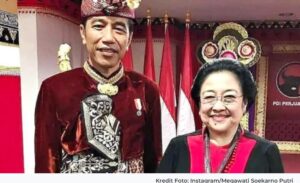
Like his father, Gibran is a member of the PDI-P, which has announced that its presidential candidate is former Central Java governor Ganjar Pranowo, and whose chairwoman, Megawati, has a tense relationship with Jokowi.
Monday’s ruling and the growing calls for Gibran to be Prabowo’s running mate sparked speculation about whether the mayor would jump ship to join the other party to enter the race, given that the PDI-P has made it clear that Gibran would no longer be part of the ruling party if he becomes Prabowo’s running mate.
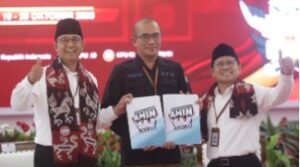
Former Jakarta Governor Anies Baswedan submitted his application for Indonesia’s 2024 presidential election becoming the first of the three presidential hopefuls to register for the February vote. He was also accompanied by leaders of the party coalition backing the pair and thousands of supporters waiting outside the gate.
Indonesia is set to open registration for February’s presidential election, marking the official start of the process to select Jokowi’s successor as leader of the world’s fourth-most populous nation. As many as 204.8 million people are eligible to cast ballots on Feb. 14 in the globe’s largest direct presidential vote.
They also will elect national and regional lawmakers, choosing candidates from among 24 parties that have passed screenings by the General Elections Commission.
Indonesian Democratic Party of Struggle (PDI-P) chairwoman Megawati Soekarnoputri named Coordinating Political, Legal and Security Affairs Minister Mahfud MD as running mate to Ganjar Pranowo for next year’s presidential election.
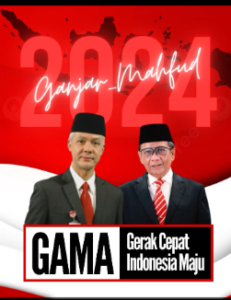
Mahfud, 66, who once served as Constitutional Court chief justice, will run as the VP candidate in the Feb. 14 poll, where Ganjar is to face off against presumptive rivals Defense Minister Prabowo Subianto of the Gerindra Party and former Jakarta governor Anies Baswedan.
With President Jokowi conspicuous by his absence, PDIP matriarch Megawati Soekarnoputri announced the running mate pick, in what analysts see as an attempt to reassert the party’s independence from the President.
The decision by PDI-P to name popular Nahdlatul Ulama (NU) figure Mahfud M.D. as Ganjar Pranowo’s running mate, analysts say, could force Prabowo Subianto’s electoral alliance to reconsider its plan to pair the former general with President Jokowi’s son, Surakarta Mayor Gibran Rakabuming Raka.
The VP pick could level the playing field with a rival pairing that is likely to involve President Jokowi’s eldest son. “It was suspected that PDI-P would appoint a figure from Islamic circles, especially from NU, to attract the attention of Islamic voters and show that Ganjar, with his nationalist background, is committed to building synergy with Islamic communities, especially the Nahdliyin [NU members],” said a BRIN researcher.
Golkar Party Chair Airlangga Hartarto received a friendly visit from Indonesian Solidarity Party (PSI) Chair Kesang Pangarep at the Golkar headquarters in Jakarta. In the meeting which lasted an hour, Golkar and PSI discussed political cooperation.

“We were talking about friendship and about cooperation for the legislative, presidential, and regional elections,” said Airlangga. The Economic Coordinating Minister added that the meeting also discussed strategic issues related to the 2024 simultaneous regional elections and the management of political parties.
Imam Malik Ridwan, a PhD candidate at Western Sydney University and a lecturer at the Institute of Islamic Studies in Fahmina Cirebon, Indonesia, and Ahalla Tsauro, graduate student at the Malay Studies Department, National University of Singapore, the union of the National Awakening Party (PKB) and the Prosperous Justice Party (PKS) under the banner of the Anies Baswedan and Muhaimin Amin presidential ticket has defied expectations. On 12 September, PKS took an unexpected turn by officially welcoming PKB, led by Muhaimin Iskandar, to a meeting at the PKS headquarters.
The meeting room resounded with ‘Yalal Wathan’, the anthem of Nahdlatul Ulama (NU), the traditionalist religious organisation that gave birth to PKB. The Chairman of NU, Yahya Choli Staquf, did not object to PKS members joining the chorus. It was a historic moment, marking the revival of a religious coalition between PKS and PKB, estranged since 2009.
This unprecedented move has significant implications for the upcoming presidential election, especially because of the coveted endorsement of NU, Indonesia’s largest religious organisation. PKB, the party of NU, is regarded as a bastion of Islamic traditionalism in Indonesia, while PKS is seen as a torchbearer of Islamic modernism, and is often compared to the Muslim Brotherhood movement.
Two popular former governors, Anies Baswedan and Ganjar Pranowo, registered their candidacy for next year’s presidential election on the first day of the weeklong registration period on Thursday, while frontrunner Prabowo Subianto was left weighing his options for running mate.
The opening of the registration period for the February 2024 poll on Thursday marks the official start of the process to select Jokowi’s successor. The candidate registration period closes on Oct. 25. First to register, Anies and running mate Muhaimin Iskandar arrived in a white open-roofed classic jeep on Thursday morning.
Indonesian Survey Institute (LSI) Executive Director Djayadi Hanan said that LSI’s latest simulation for three pairs of presidential and VP candidates always placed the Prabowo Subianto and Erick Thohir pair in the top position. In the first simulation, Prabowo-Erick got 38.0 percent, with Ganjar-Mahfud M.D. at 32.3 percent and Anies-Muhaimin at 22.9 percent. Djayadi said that Prabowo did well regardless of VP pairing, but the best when paired with Erick.
Indonesia is entering an important stage of the 2024 general election, namely the registration process of Presidential Candidates and Vice Presidential Candidates, which will be advanced in the February 2024 Presidential Election.
The political situation in Indonesia is dynamic, as political groups in Indonesia are relatively more complex than other countries, such as Australia which is dominated by few parties. Therefore, what happens during the political process this week is very interesting, as it will show the potential winner in the 2024 presidential election.
From bread-and-butter issues to geopolitical rivalry, several issues will be the main concerns of Indonesians when they head to the polls on Feb. 14 next year to elect a new president and parliament members, say analysts.
Topping the list is the state of the economy as people grapple with increased cost of living, unemployment and inflation, and how the new president will help cushion the impact through policies and schemes.
Prabowo Subianto, Gerindra Party’s front runner for Indonesia’s 2024 presidential election, announced that President Jokowi’s eldest son, Gibran Rakabuming Raka, is his running mate for the presidential race. “The Onward Indonesia Coalition has held a final discussion, and by consensus, all have agreed to nominate Prabowo Subianto as presidential candidate and Gibran Rakabuming Raka as vice presidential candidate,” he said when making the announcement at his residence in Jakarta.
Indonesian presidential hopeful Prabowo Subianto’s bid to capitalise on incumbent leader Joko Widodo’s popularity by picking his son as a running mate may be a double-edged sword in his third bid for the top job, observers say.

Defence Minister Prabowo has been narrowly leading recent opinion surveys for the February 2024 presidential election. While running with the popular president’s son, Gibran Rakabuming Raka, could help increase Prabowo’s chances of victory, the move could also backfire on him.
The pairing stands to ruffle some feathers in Indonesia’s political scene, particularly within the ruling Indonesian Democratic Party of Struggle (PDI-P) to which both Widodo and his son belong.
Indonesian Democratic Party of Struggle (PDI-P) Central Council Chair Puan Maharani said that until now there was no resignation letter made by Gibran Rakabuming Raka regarding the Golkar Party’s support for him to run as Prabowo Subianto’s vice presidential candidate.
Indonesian presidential contender Prabowo Subianto topped a second opinion poll in the space of two days though still ahead of the ruling party’s Ganjar Pranowo by only a narrow margin as election season kicks off in earnest.
An Oct. 2–10 survey by pollster Indikator Politik released on Friday showed defence minister Prabowo backed by 37 percent of the 4,300 respondents, with former Central Java governor Ganjar on 34.5 percent and ex-Jakarta governor Anies Baswedan on 21.9 percent. Nearly seven percent were undecided.
As required for all candidates participating in the February 2024 election, presidential candidate Anies Baswedan and his running mate, Muhaimin Iskandar, underwent a comprehensive medical checkup in Jakarta, while Presidential candidate Ganjar Pranowo and his running mate Mahfud M.D. underwent the checkup.
As an outsider with no affiliation with Soeharto’s authoritarian New Order regime, President Jokowi was hailed as “a new hope” and the first true product of the Reform era when he won his first presidential election in 2014.
Nine years later, however, observers argue that Indonesian democracy has undergone a decline and that its justice system has been crippled under the weight of the competing interests of oligarchs.
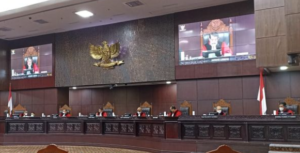
The Constitutional Court ruling earlier this week, which paved the way for Jokowi’s eldest son to run in the 2024 presidential election, served as the latest proof of eroding democratic institutions under the Jokowi administration, particularly in the judiciary and law enforcement.
Watchdogs and civil rights organizations have lambasted the court’s decision as politically driven and ridden with conflicts of interest, on account of the role of Chief Justice Anwar Usman, Gibran’s uncle by marriage.
Yoes C Kenawas, Research Fellow at Institute for Advanced Research, Atma Jaya Catholic University, just three days after he became a member of the Indonesian Solidarity Party (PSI) in September 2023, Indonesian President Joko ‘Jokowi’ Widodo’s youngest son, Kaesang Pangarep, was appointed the party’s chairman. Kaesang’s ascendancy to PSI’s leadership caps what is probably the fastest political rise ever seen in Indonesian politics for someone who is not the founder of a political party.
Less than three weeks later, the Indonesian public was again shocked by a Constitutional Court decision to exempt candidates with experience as elected officials from a legal rule barring those under 40 from competing in presidential elections. The Court’s ruling paves the way for President Jokowi’s eldest son, the 36-year-old Gibran Rakabuming Raka, to run in the 2024 presidential elections.
These twin events mark the emergence of a Jokowi dynasty, as the president prepares to leave office in 2024. The appointment of Kaesang as PSI chairman — and the increasing possibility of Gibran being appointed as Defence Minister Prabowo Subianto’s running mate following the Court’s decision — can be seen as part of a plan to keep the Jokowi dynasty in a position of influence after 2024. Dynastic politics necessitates meticulous succession planning, and Kaesang’s accession and the Court’s ruling are necessary steps towards achieving this objective.
John McBeth, journalist and author, some months ago, the word out of presidential candidate Prabowo Subianto’s camp was that he saw a potential team-up with President Joko Widodo’s eldest son as a golden ticket that would virtually guarantee the defense minister’s victory in next February’s presidential race.
Despite the controversy over the crass way the candidacy of 36-year-old Solo town mayor Gibran Rakabuming was engineered, that view apparently didn’t change. On October 22, the boyish businessman was officially announced as Prabowo’s running mate.
The move will almost certainly lead to open warfare between Widodo and Megawati Sukarnoputri, leader of the ruling Indonesian Democratic Party for Struggle (PDI-P) which the president, Gibran and his youngest son, Kaesang Pangarep, have all ostensibly belonged to up until now.
Throughout 2023, a major question of speculation in Indonesia has been whether the 36-year-old Gibran Rakabuming Raka, who in 2022 was elected mayor of his and his father’s home city of Solo, would join the presidential ticket of Defence Minister Prabowo Subianto. The move would both give Prabowo a seal of approval from an unprecedentedly popular, outgoing President, as well as strengthening Gibran’s future presidential potential.
The problem was that the election laws passed in 2017 barred individuals under the age of 40 from contesting presidential elections. Three lawsuits in the Constitutional Court sought to have the age limit lowered, or waived for citizens with previous experience in government. The court threw out the first two of these cases entirely. But in a decision on a third, it swiftly contradicted its previous two rulings, introducing a new loophole for those who had previously held elected office to be exempt from the age limit.
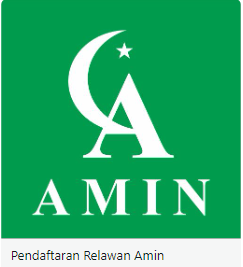
This was a decision tailor-made to enable a vice-presidential candidacy for Gibran — and it wasn’t lost on critics that the Court’s chief justice was the president’s brother-in-law and Gibran’s uncle. The decision was promptly excoriated by the press commentariat as judicial activism in service of dynasticism. Jokowi and the Prabowo campaign team were worried enough about the response to commission snap opinion polls to gauge the depth of any backlash.
In the penultimate year of his second and final term President Jokowi must be taking stock of all the legacies that he will leave to the nation. During the transfer of power on Oct. 21 next year, he will certainly want to make sure his achievements will help his successor bring the republic closer to justice and prosperity for all.
Certainly whoever succeeds Jokowi will have a clear picture of how to make the vision work and be plausible, or else he will find a better option than that which Jokowi has prepared. With all his work, Jokowi stands a great chance of leaving a mark when he steps down.

But a series of events lately could dent such hopes. Jokowi has admitted to playing an active role in defining the course of the upcoming presidential election for the good of the nation, but the Constitutional Court’s ruling early this week indicates the opposite.
John McBeth, journalist and author, Indonesia’s Constitutional Court has cleared the way for President Joko Widodo’s 36-year-old son, Solo town mayor Gibran Rakabuming, to become the running mate to front-runner Prabowo Subianto in the February 14 presidential election. But neither has said whether they will follow through on the court decision to run together.The 5-4 ruling on the separate petition is widely seen as an attempt to perpetuate Widodo’s dynasty – a phenomenon that has barely taken root in Indonesia – and extend his influence beyond the end of his presidency next October when he is expected to continue his career as leader of a political party.
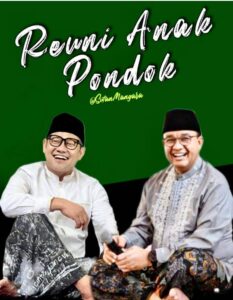
What did not sit well with many critics was the fact that the chief justice of the Constitutional Court is Widodo’s brother-in-law, Anwar Usman, 66, who made known his personal views on the subject in an earlier public lecture by noting that the Prophet Muhammad appointed a 16-year-old boy as his military commander.




